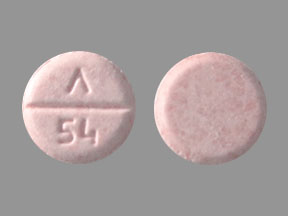
Amiodarone Coupons & Savings Card – Discount Prices from $26.04
Generic for: Pacerone
My prescription
Edit
200MG, Amiodarone (90 Tablets)
Select pharmacy

CVS
$31.65
COUPON PRICE
Albertsons
$26.04
COUPON PRICE
Walgreens
$28.26
COUPON PRICE
Walmart
$46.91
COUPON PRICEAmiodarone savings card
Show this card to your pharmacist
Albertsons
$26.04
BIN
ID
PCN
GRP
019876
LH5F83D5B1
CHIPPO
LHX
Powered by
More prescriptions for ventricular arrhythmia
More prescriptions for ventricular arrhythmia
Price history for Pacerone (brand) & Amiodarone (generic)
90 Tablets, 200MG
Average retail price for Pacerone
Average retail price for Amiodarone
Average SaveHealth price for Amiodarone
Our price history data is based on aggregated prescription data collected from participating pharmacies in America. Our prescription data updates daily to reflect the latest price changes. If you notice a missing data point, it means there wasn't sufficient data available to generate a monetary value for that date.
We analyzed Amiodarone prices for (200MG, 90 Tablets) over the last 12 months. The average retail price was $137.71, while the average price using the SaveHealth discount card was $19.32. That's a savings of approximately 85.97% when using our Amiodarone coupon.
Compared to the generic version, Pacerone had an average price of $301.14 over the same time period. With the SaveHealth savings card, Amiodarone is 93.58% cheaper on average than Pacerone.
*Retail prices are based on pharmacy claims data, and may not be accurate when we don't have enough claims.
Amiodarone dosage forms
Dosage Quantity Price from Per unit 100MG 1 Tablet $3.29 $3.29 100MG 30 Tablets $24.50 $0.82 100MG 50 Tablets $28.64 $0.57 100MG 90 Tablets $44.91 $0.50 200MG 90 Tablets $26.04 $0.29 200MG 1 Tablet $9.11 $9.11 200MG 10 Tablets $10.14 $1.01 200MG 30 Tablets $12.42 $0.41 200MG 60 Tablets $15.84 $0.26 200MG 100 Tablets $27.27 $0.27
| Dosage | Quantity | Price from | Per unit |
|---|---|---|---|
| 100MG | 1 Tablet | $3.29 | $3.29 |
| 100MG | 30 Tablets | $24.50 | $0.82 |
| 100MG | 50 Tablets | $28.64 | $0.57 |
| 100MG | 90 Tablets | $44.91 | $0.50 |
| 200MG | 90 Tablets | $26.04 | $0.29 |
| 200MG | 1 Tablet | $9.11 | $9.11 |
| 200MG | 10 Tablets | $10.14 | $1.01 |
| 200MG | 30 Tablets | $12.42 | $0.41 |
| 200MG | 60 Tablets | $15.84 | $0.26 |
| 200MG | 100 Tablets | $27.27 | $0.27 |
| 200MG | 500 Tablets | $63.80 | $0.13 |
| 400MG | 30 Tablets | $23.07 | $0.77 |
| 400MG | 100 Tablets | $50.26 | $0.50 |
